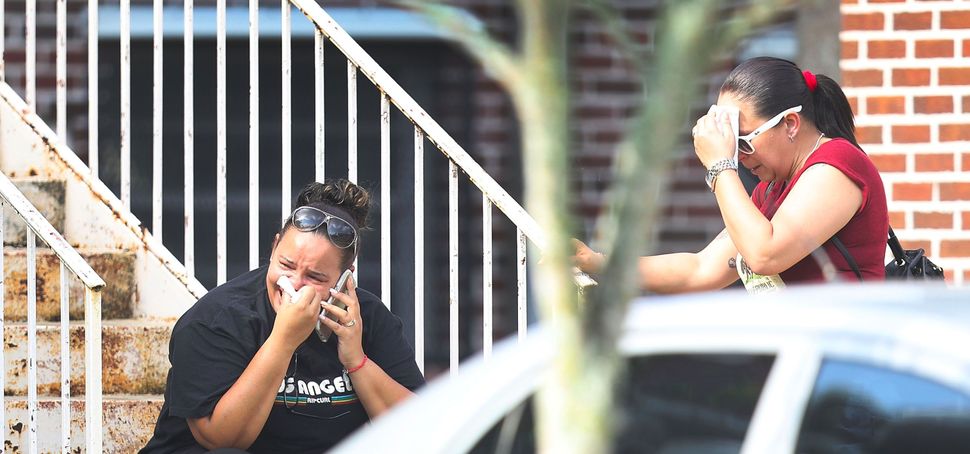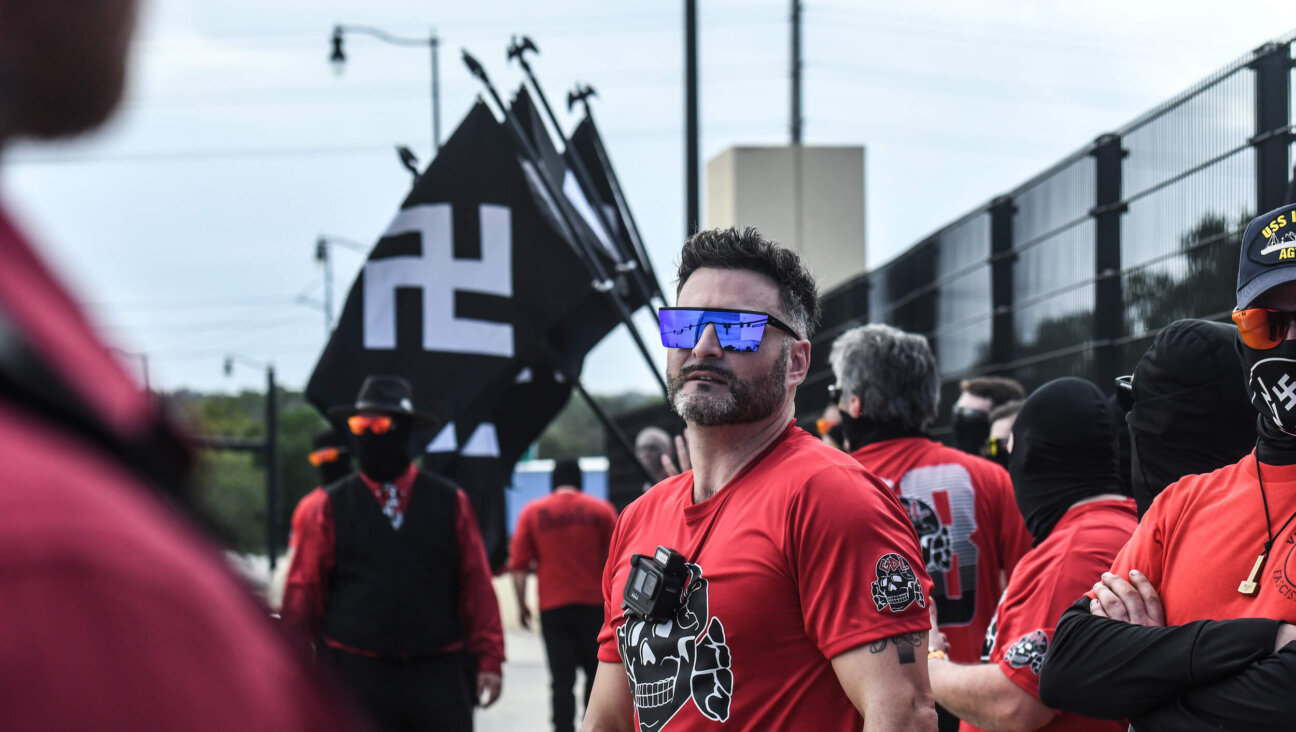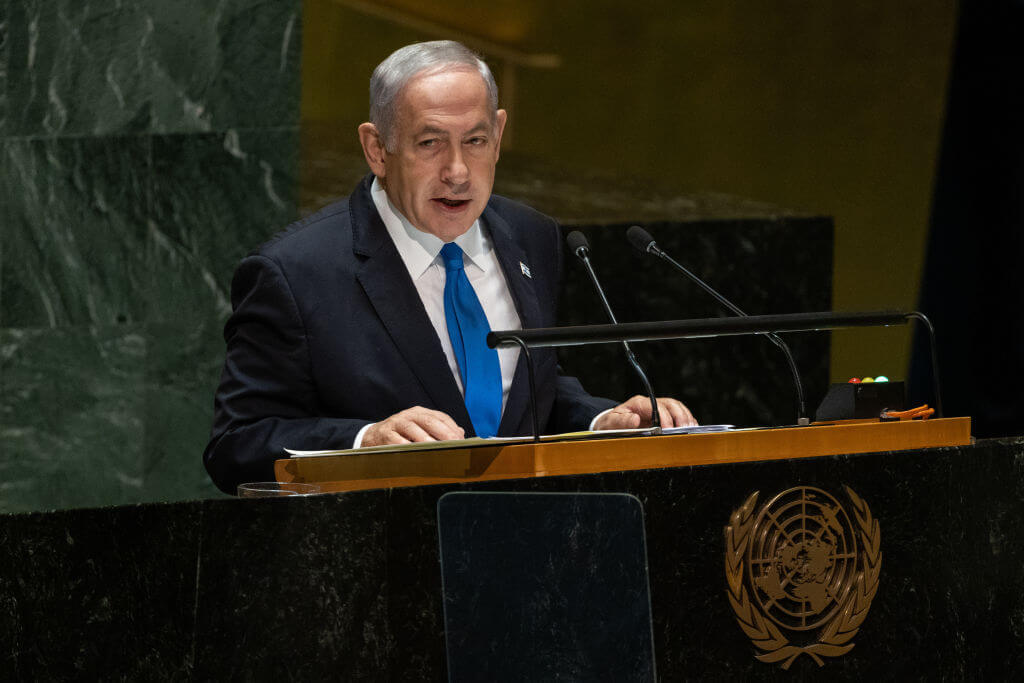How Orlando Can Come Together To Be Symbol of Coexistence — Not Hateful Violence

Image by Getty Images
Orlando, “the City Beautiful” as it is officially known, a city known to most around the world for Walt Disney World, Harry Potter and being the place “where dreams come true” is now on the map as the site of the single largest mass murder in U.S. history.
Yesterday in Orlando, a different history was made at a popular LGBT nightclub with the senseless slaughter of 49 people (and over 50 others still hospitalized) by a Muslim who had sworn allegiance to ISIS.
While the investigation is being vigorously pursued and loved ones and supporters pack the hospital and surrounding parks awaiting word on family and friends, a discussion is unfolding in Orlando about what brought this kind of carnage to a city known previously only for its ability to entertain families with fun-filled vacations.
Some in our community are seeing this as yet another mindless bloodletting by a country unwilling or unable to restrain its lust for guns. In a January report by National Public Radio, “according to the Congressional Research Service, there are roughly twice as many guns per capita in the United States as there were in 1968: more than 300 million guns in all.” This is almost one gun for every man, woman and child in the United States.
Already we are seeing calls in the local press for more gun control and more laws all designed to make it harder for terrorists and madmen (is there a difference?) to get weapons. Those calling for these new restrictions will remind us of the slaughter of 26, including 20 children, at Sandy Hook Elementary school in 2012 and 32 murdered at Virginia Tech in 2007.
Opponents of this view in Orlando will correctly point out that like the murderers at Sandy Hook and Virginia Tech, the murderer in Orlando not only purchased his weapons and ammunition legally, he was actually a security guard. Could more laws have stopped this attack? I’m not sure.
So if weapons are not the cause, then what? Is motive the answer? Sandy Hook and Virginia Tech were atrocities carried out by individuals with clear mental health problems and neither professed any ethos, religious or political cause to justify their slaughter.
However, here in Orlando, the murderer identified himself to 911 by phone as a loyalist to ISIS. Moreover, ISIS itself has proudly proclaimed its role in the attack.
A few months ago, the Husseini Islamic Center in nearby Sanford, Florida hosted an Iranian Shi’ite Cleric who called for the death sentence for all homosexuals. While there is no known connection between this individual (who is from a Sunni community) and this Shi’ite mosque, the event passed with relative silence both in the Muslim and wider Orlando community. A warning shot was fired over the bow of our own community by an extremist and the message of silence was all it got in return.
Local news is now reporting that the Orlando murderer was connected to an extremist Sunni imam in Orlando who did indeed preach hatred towards homosexuals at his extreme Timbuktu Seminary in town. This preacher was known to law enforcement officials and had a record.
Because of facts like these, there are voices in the community who claim that Islam is the problem and will be quoting these incidences as proof that the religion rather than its practitioners is the problem ( a sort of “guns don’t kill people, people kill people” argument).
The challenge with this theory of course is the facts on the ground. Here in Orlando, like in much of the Islamic (and indeed the Christian and Jewish world), there is no monolithic practice, convention or authority. There is the Islamic Center of Central Florida which represents perhaps the largest sector of the Muslim community and there is also the smaller, though no less significant, American Muslim Community Center and many others, all autonomous from one another and independent by design. Both of the larger organizations are well known throughout Central Florida for their civic-mindedness, community service and dedication to promoting Islam as a religion of peace.
At Central Florida Hillel, we have worked frequently with both organizations and know their leadership well through our multiple partnerships, collaborations and friendship.
The Imam of the Islamic Center has frequently condemned terror attacks in general and with great specificity and has openly spoken out against terrorism as having any justification in Islamic tradition (including terrorism against Israeli civilians). When problems have occurred on campus at the University of Central Florida, we at Central Florida Hillel have frequently turned to our friends at the Islamic Center to find solutions together, to speak with one voice against hatred and even to create a new dialogue group called the Salaam-Shalom Dialogue group. The Islamic Center is well aware of Central Florida Hillel’s positions on LGBT issues including our Jewish LGBT club, our proudly displayed LGBT Israeli flag and our willingness to encourage exploration of these topics through our dialogue group.
So if the problem is not guns and it’s not Islam, then what?
For some in our community, the problem in Orlando is the same problem that nations of the Middle East, including Israel are facing and that it is Islamic fanaticism. Others in our community are hesitant to use such “broad language” and instead prefer to view this attack as a “gun issue” or a “gay-bashing” issue or even a “mental health” issue rather than admit that the U.S. has a problem with Islamic fundamentalism.
If this incident in Orlando is truly to the last of its kind, then it will take a major change in policy from Washington not just on guns, but on better laws to protect the LGBT community particularly in states like Florida where the Governor has been notably reticent to do so. While Florida has a large LGBT community, the governor has been slow to enact laws that enshrine their equal rights.
As the community puts itself back together, and the Pulse Lounge cleans up and hopefully reopens soon with a big community celebration of gay, allied and community supporters, we in Orlando will have to take a long hard look at what role we will take in shaping the events that follow this tragedy.
A terrible kind of history was made in Orlando yesterday. Let us all hope and pray that in the future, we look back on this moment as the time when our resolve to preserve liberalism by fighting extremism was begun in the City Beautiful.
Aaron Weil is the Executive Director and CEO of the Central Florida Hillel. This piece first appeared on Haaretz.com
A message from our CEO & publisher Rachel Fishman Feddersen

I hope you appreciated this article. Before you go, I’d like to ask you to please support the Forward’s award-winning, nonprofit journalism during this critical time.
We’ve set a goal to raise $260,000 by December 31. That’s an ambitious goal, but one that will give us the resources we need to invest in the high quality news, opinion, analysis and cultural coverage that isn’t available anywhere else.
If you feel inspired to make an impact, now is the time to give something back. Join us as a member at your most generous level.
— Rachel Fishman Feddersen, Publisher and CEO























